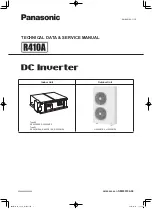
13
2. 6. 2 Applikation der Neutralelektrode
1
Die Hinweise zur Verwendung der
Neutralelektrode in der Gebrauchsanweisung
und Hinweise auf der Verpackung der
Neutralelektrode beachten.
Die Neutralelektrode hat bei der unipolaren
HF-Technik die Aufgabe, den an der
Operationsstelle in den Körper eingeleiteten Strom
wieder zum HF-Gerät zurückzuleiten.
e
Um eine Temperaturerhöhung an der
Stromaustrittstelle zu vermeiden, auf folgende
Gegebenheiten achten:
•
Ausreichend große Berührungsfläche
zwischen Neutralelektrode und Körper
•
Hohe elektrische Leitfähigkeit
zwischen Neutralelektrode und Körper
e
Um Verbrennungen durch die Neutralelektrode
auszuschließen, Folgendes sicherstellen:
•
Die Applikationsstelle der Neutral-
elektrode so wählen, dass die
Strom wege zwischen Aktiv- und
Neutralelektrode so kurz wie
möglich sind und in Längs- oder
Diagonalrichtung zum Körper
verlaufen (da Muskeln in Richtung
der Fibrillen eine höhere Leitfähigkeit
besitzen; siehe Abb. 2).
•
Bei Operationen im Bereich des
Thorax den Stromweg nicht quer
verlegen und darauf achten, dass das
Herz niemals im Stromweg liegt.
•
In Abhängigkeit vom Operationsfeld
die Neutralelektrode möglichst am
nächstgelegenen Oberarm oder
Oberschenkel applizieren, jedoch nicht
näher als 20 cm.
•
Bei selbstklebenden Einmal-Elektroden
weitere Angaben des Herstellers zur
Applikationsstelle beachten.
•
Dafür sorgen, dass die Applika-
tionsstelle frei von Narbengewebe,
Knochenvorsprüngen, behaarten
Stellen und EKG-Elektroden ist.
Applikationsstelle der Neutralelektrode
Sicherheit
Seguridad
2. 6. 2 Aplicación del electrodo neutro
1
Observe las indicaciones sobre el empleo
del electrodo neutro en el Manual de
instrucciones, así como las indicaciones en
el embalaje del electrodo neutro.
En la técnica unipolar de AF, el electrodo neutro
desempeña la función de reconducir al aparato de
AF la corriente introducida en el organismo por la
zona de operación.
e
Para evitar un aumento de la temperatura en el
punto de salida de la corriente, asegúrese de
cumplir los siguientes aspectos:
•
superficie de contacto suficientemente
grande entre el electrodo neutro y el
cuerpo
•
elevada conductividad eléctrica entre
el electrodo neutro y el cuerpo
e
Para impedir quemaduras debidas al electrodo
neutro, asegúrese de lo siguiente:
•
Elija la zona de aplicación del electrodo
neutro de modo que el recorrido de
corriente entre el electrodo activo y el
neutro sea lo más corto posible y trans-
curra en sentido longitudinal o diagonal
al cuerpo (puesto que los músculos
poseen una mayor conductividad en el
sentido de las fibrillas; véase la fig. 2).
•
Para operaciones en la región
torácica, no aplique un recorrido
transversal de la corriente y asegúrese
de que el corazón nunca se encuentre
en el recorrido de la corriente.
•
En función del campo operatorio,
fije el electrodo neutro al brazo o
muslo más próximo posible al campo
operatorio, pero nunca a menos de
20 cm de distancia.
•
Si usted utiliza electrodos desechables
autoadhesivos, observe las
indicaciones adicionales del fabricante
respecto a la zona de aplicación.
•
Asegúrese de que en la zona de
aplicación no existe tejido cicatricial,
protuberancias óseas, zonas con vello
ni electrodos de ECG.
Lugar de aplicación del electrodo neutro
2
Safety
2. 6. 2 Applying the neutral electrode
1
Observe the instructions on the use of the
neutral electrode in the instruction manual
and the information on the package of the
neutral electrode.
In the unipolar HF method, the neutral electrode
feeds the current introduced into the patient’s
body at the surgical site back to the HF device.
e
To prevent a rise in temperature at the current
exit point, the following conditions must be
ensured:
•
Sufficiently large contact surface
between the neutral electrode and the
patient’s body;
•
High electrical conductivity between the
neutral electrode and the patient’s body.
e
To prevent the patient being burned by the
neutral electrode, you must comply with the
following conditions:
•
Select the application point for the
neutral electrode so that the current
paths between the active and neutral
electrodes are as short as possible
and run longitudinally or diagonally to
the patient’s body (because muscles
are more conductive in the direction of
the fibrils, see Fig. 2).
•
For surgery in the thoracic region, do
not run the current path transversely
across the patient’s body and ensure
that the patient’s heart is never in the
current path.
•
Depending on the surgical site, apply
the neutral electrode to the nearest
upper arm or thigh if possible, but
never closer than 20 cm.
•
In the case of self-adhesive disposable
electrodes, comply with any further
manufacturer instructions regarding
the point of application.
•
Ensure that the application area is free
of scar tissue, bony protuberances,
surface hair and ECG electrodes.
Application point for neutral electrode
















































